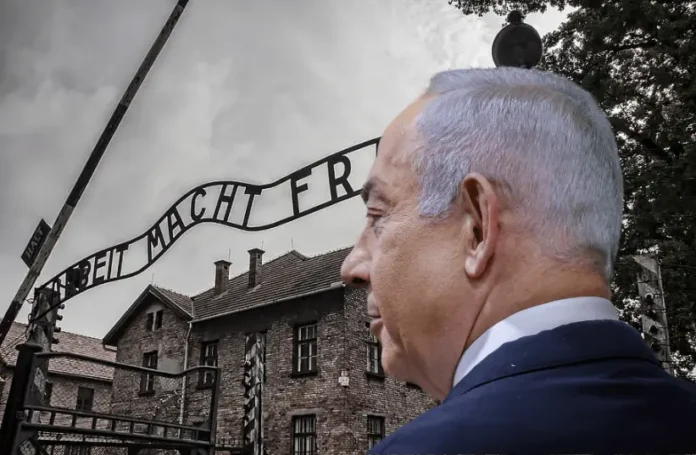
Poland has confirmed it would arrest Israeli Prime Minister Benjamin Netanyahu if he attempts to attend the 80th anniversary commemoration of the Auschwitz liberation, scheduled for January 27. This development marks a significant diplomatic challenge for Israeli representation at this historic event.
ICC Arrest Warrants: Polish Stance
The declaration was made by Polish Deputy Foreign Minister Wladyslaw Bartoszewski in an interview with the Polish legal and economic publication Rzeczpospolita. Citing Poland’s responsibilities under the Rome Statute, the minister underlined Poland’s dedication to respecting arrest warrants issued by the International Criminal Court (ICC).
The attitude taken by the Polish government is consistent with their larger views on international justice, especially with regard to their wish to have Russian President Vladimir Putin tried by the ICC for the abduction of Ukrainian children from occupied territory.
Impact on Israeli Representation
The diplomatic situation has resulted in significantly reduced Israeli participation in the memorial event:
- Education Minister Yoav Kisch will serve as the sole Israeli government representative
- Prime Minister Netanyahu’s attendance remains uncertain
- President Isaac Herzog’s participation appears unlikely
ICC Arrest Warrants: Background
Yoav Gallant, the Israeli defence minister, and Netanyahu were accused of a number of crimes by the ICC in November. Netanyahu now faces previously unheard-of difficulties when travelling abroad, especially in countries covered by the Rome Statute.
European Union’s Response to ICC Arrest Warrants
The situation has prompted varied responses across the European Union, where all 27 member states are signatories to the Rome Statute:
Countries Confirming Arrest Mandate:
- Spain
- Netherlands
- Belgium
- Ireland
- Lithuania
- Slovenia
Countries with Modified Positions:
- France initially pledged full compliance but later granted diplomatic immunity following Lebanon ceasefire negotiations
- Hungary stands as the only EU nation explicitly offering Netanyahu protection, with Prime Minister Viktor Orban extending a formal invitation
Diplomatic Implications of ICC Arrest Warrants
The circumstance demonstrates the intricate relationship between diplomatic relations, international law, and historical remembrance. The ICC warrants’ profound effects on international diplomacy are highlighted by the diminished Israeli representation at such a momentous occasion.
The Israeli prime minister could be arrested at an event honoring one of the most important Holocaust locations, which is an uncommon situation that especially affects Israel’s historically strong representation at Holocaust memorial events.
The Polish government’s stance also reflects a broader commitment to international justice mechanisms, potentially setting a precedent for how other nations might handle similar situations involving international arrest warrants for high-ranking government officials.



